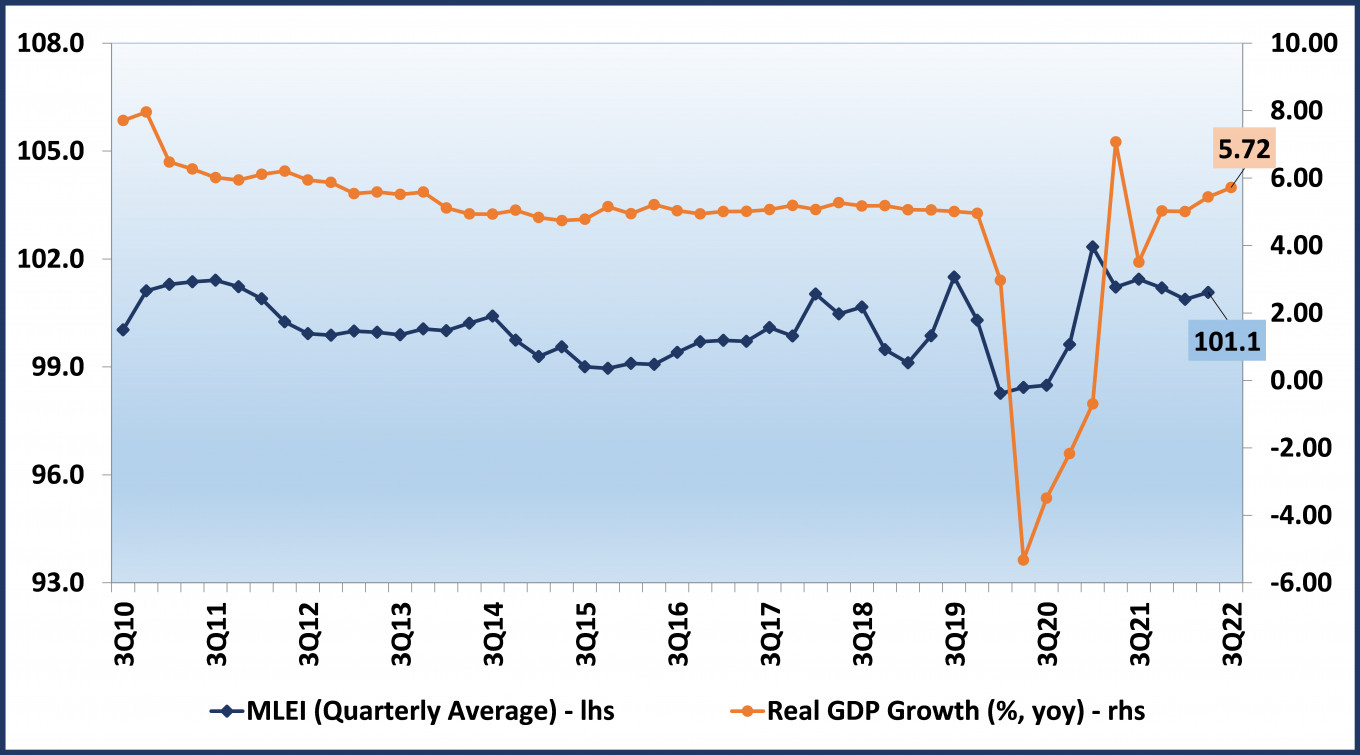Popular Reads
Top Results
Can't find what you're looking for?
View all search resultsPopular Reads
Top Results
Can't find what you're looking for?
View all search resultsSo, what about that 7% target?
Education is key to Indonesia hitting the 7 percent GDP growth promised before the pandemic hit, and there’s no time to lose.
Change text size
Gift Premium Articles
to Anyone
H
alfway into 2023, the World Bank and the International Monetary Fund (IMF) have released separate reports on the state of Indonesia’s economy. External assessments should always be welcomed and studied, especially the critical bits.
Several developed economies are either going through or threatened by recession, and China’s growth since Beijing lifted COVID-19 lockdowns has not lived up to expectations. Indonesia is meanwhile projected to experience just a mild slowdown, primarily because global commodity prices have come down and domestic demand is seen to moderate.
The IMF expects the Indonesian GDP to grow 5.0 percent this year and 5.1 percent in 2024. The World Bank, just a tad less optimistic, forecasts 4.9 percent for 2023 and 5.0 percent for next year. Notably, these figures are in line with pre-pandemic Indonesian growth, and the term “slowdown” applies only in comparison to last year’s unusually strong growth of 5.3 percent.
According to IMF forecasts, Indonesia is set to handily beat global economic growth of 2.8 percent this year and slightly outpace ASEAN growth of 4.6 percent.
Inflation has already been pushed down to within Bank Indonesia’s target range, while it remains stubbornly high in many advanced and emerging economies. The World Bank’s Indonesia Economic Prospects report partly attributes the country’s success in curbing food price rises to “government intervention at subregional level to ease supply bottlenecks”.
Other countries that rely predominantly on monetary policy to contain consumer prices may want to watch and learn from that hands-on approach, which has become a hallmark of inflation control in Indonesia.
Noting the faster-than-planned fiscal consolidation, declining debt held by nonresidents and adequate forex reserves, the World Bank believes that “Indonesia is becoming more resilient to external shocks”.
Most external risks, such as mounting debt in developed economies and geopolitical tensions between major powers, fall outside Indonesia’s control. While our government cannot eliminate external risks, it can and should create internal opportunities.
Speaking of which, it is worth remembering that 5 percent is much less than the long-term average GDP growth the country once aspired to: Early on in his first term, President Joko “Jokowi” Widodo pledged 7 percent.
That target sounds wholly unrealistic today, as the country lacks the potential GDP needed to pull it off even if it fully utilized all its resources and if there was a supportive global economic environment at the same time.
One issue that Indonesia must address to make such growth attainable is productivity, particularly labor productivity.
“Potential growth is declining due to reduced labor input, weak human capital formation and slowing productivity growth,” states the World Bank report, which, not coincidentally, is subtitled The Invisible Toll of COVID-19 on Learning.
Stable GDP growth and capped inflation are a testament to good day-to-day macroeconomic management on the part of the country’s political and monetary authorities, but they alone do not prepare the national economy for the longer-term challenges that lie ahead.
Education, or more precisely, lifelong learning, is at the center of labor productivity, and it is crucial for Indonesia to improve in this area, and quickly, lest the country’s much-touted demographic dividend goes to waste.
Most countries lost learning time as the pandemic disrupted education worldwide, but the damage has been arguably greater in less developed countries and emerging economies, where a larger share of students struggle to access online classes and a greater part of the population is of school age.
There is no time to waste, as Indonesia must make up for lost time now.
Education needs to be beefed up across the board, which requires massive investment from both the public and the private sectors, including foreign investment.
Merely throwing money at schools is not going to solve the issue, however. Instead, many aspects of learning need to be reimagined against the backdrop of what the world will look like in 2050.











